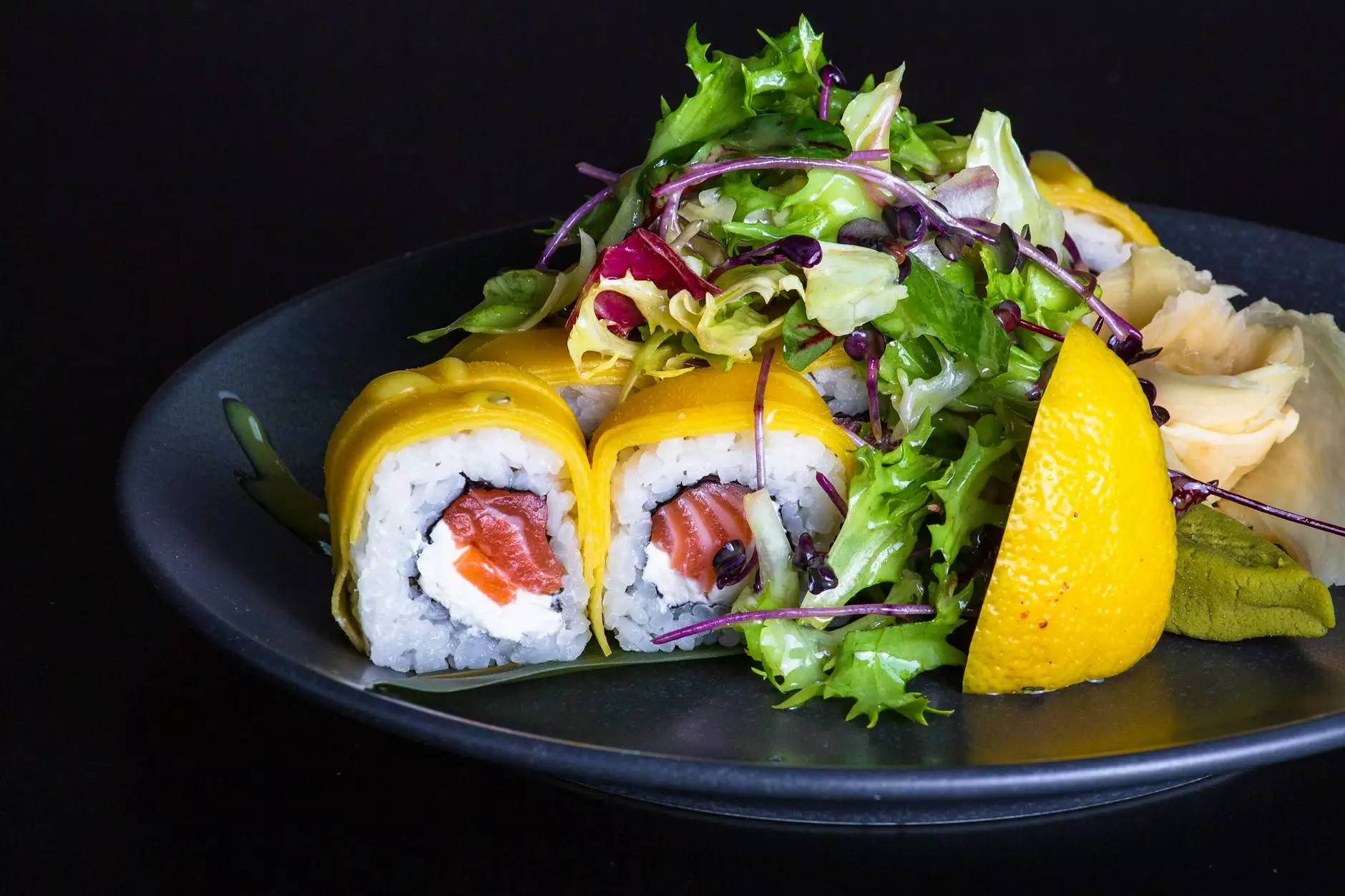Unveiling the Mystique of Japanese Wasabi

Japanese wasabi is not just a condiment; it’s a vibrant expression of Japan's culinary artistry. Known for its distinct flavor and pungent heat, wasabi plays an integral role in traditional Japanese cuisine, particularly in sushi bars and restaurants. This article delves deep into the origins, uses, and health benefits of Japanese wasabi, aiming to educate and inspire culinary enthusiasts at all levels.
The Origins of Japanese Wasabi
Japanese wasabi, or Wasabia japonica, is a plant native to the cool, running waters of Japan. Historically, this rhizome has been cultivated for over a thousand years, making it a fundamental part of Japanese culinary tradition. Its cultivation is intensive and requires specific conditions to thrive, including a shaded environment with consistent water supply.
The Cultivation Process
Wasabi requires meticulous care and attention to detail. Here are the essential steps involved in its cultivation:
- Location: It is primarily grown in shaded, damp areas close to clear, cold streams.
- Soil Preparation: The soil must be rich in nutrients and well-drained.
- Watering: Constant access to fresh water is crucial for its growth.
- Harvesting: It typically takes 2-3 years for wasabi to mature, and it is harvested carefully to preserve its delicate structure.
The Flavor Profile of Japanese Wasabi
Distinguished by its unique flavor profile, Japanese wasabi is much more than just a spicy addition to sushi. The flavor can be described as follows:
- Pungent: The initial kick is intense, stimulating the senses.
- Fresh: Unlike horseradish, which can be overwhelming, wasabi has a fresher taste with subtle undertones.
- Complex: It evolves on the palate and can enhance the flavors of the dishes it accompanies.
Health Benefits of Japanese Wasabi
Beyond its culinary applications, Japanese wasabi also offers numerous health benefits. Consuming this spicy root can lead to:
- Antimicrobial Properties: Wasabi contains compounds that may help fight bacteria and prevent foodborne illnesses.
- Anti-Inflammatory Effects: The isothiocyanates found in wasabi can reduce inflammation, providing relief from various ailments.
- Rich in Antioxidants: Japanese wasabi is high in antioxidants, contributing to overall health and wellness.
- Support for Digestion: It can stimulate digestive enzymes, aiding in better gut health.
- Potential Cancer-Fighting Qualities: Some studies suggest that wasabi may help inhibit cancer cell growth.
Incorporating Japanese Wasabi into Your Meals
Integrating authentic Japanese wasabi into your meals can elevate the dining experience significantly. Here are some ways to utilize this versatile ingredient:
Sushi and Sashimi
Perhaps the most recognized use of Japanese wasabi is as a condiment for sushi and sashimi. Here’s how to serve it:
- Authentic Pairing: Traditional sushi rolls are best enjoyed with freshly grated wasabi for an enhanced flavor.
- Dipping Sauce: Mix wasabi with soy sauce to create a spicy dipping sauce that complements raw fish beautifully.
Soups and Broths
Add a touch of wasabi to soups and broths for an unexpected kick. A small amount can transform a simple miso soup into a gourmet experience.
Marinades and Dressings
Create savory marinades for meats or vegetables by incorporating wasabi. Its heat mellows during cooking, infusing dishes with a rich flavor.
Creative Dishes
Explore wasabi in contemporary dishes like:
- Wasabi Mashed Potatoes: For a twist on a classic side, mix wasabi into mashed potatoes.
- Wasabi Aioli: Combine wasabi with mayonnaise and garlic for a zesty dip.
- Wasabi Hummus: Add wasabi to hummus for an innovative twist on a popular snack.
Where to Find Authentic Japanese Wasabi
When looking to purchase authentic Japanese wasabi, there are a few key places to explore:
- Specialty Markets: Many Asian grocery stores stock authentic wasabi products.
- Online Retailers: Websites like realwasabi.com offer fresh wasabi rhizomes and other related products.
- High-End Restaurants: Some sushi bars and Japanese restaurants serve authentic wasabi directly from the root.
Conclusion
In conclusion, Japanese wasabi is a remarkable ingredient that brings a burst of flavor and numerous health benefits to the table. From its rich history and intricate cultivation processes to its diverse culinary applications, wasabi is truly a jewel in the crown of Japanese cuisine. Whether you enjoy it at a local sushi bar or experiment with it in your own kitchen, wasabi can elevate your dining experience and tantalize your taste buds.
For more information on premium Japanese wasabi products, visit realwasabi.com. Embark on a flavor journey today!









